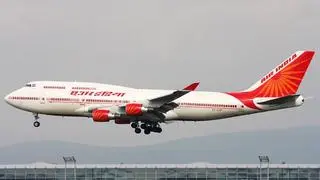Since the start of the pandemic, the International Air Transport Association (IATA), a trade body for the world’s airlines, has been looked at as an entity unable to deal with the Covid-19 crisis. But it now seems to have come up with a workable plan.
One has to also admit that nothing could have prepared IATA for far-reaching issues involving refunds running into millions of dollars or on the adoption of a common and secure safety protocol.
The IATA has come up with what seems like a viable proposal to resolve the problem of physical documentation for passengers who are allowed to travel after being tested for the coronavirus or for those who have been vaccinated.
Called the Travel Pass , it is a mobile application that allows travellers to store and manage certifications for Covid-19 tests or vaccines. While IATA is in talks with several airlines, including from India, few seem to have readily taken to this new development.
This is mainly because airlines and countries adopt different safety protocols. According to Satyendra Pandey, Partner, Airavat Transport & Technology Ventures, arrival formalities in Dubai are different from those in Singapore or New York. Passengers arriving into Dubai must hold a negative RT-PCR test certificate, printed in English, for which the test must be taken no more than 72 hours before departure.
Passengers from countries such as India, Afghanistan and Bangladesh require one more test on arrival. Everyone must also download the Covid19–DXB Smart app, which gives information on the virus.
In Singapore, all travellers have to take an RT-PCR test upon arrival in Singapore and foot the bill of $200. Transit passengers are provided with a wristband for access to the designated transit holding areas at the airport. Those coming to New York have to take a test within three days before arrival and then must quarantine for three days and take a second test as well.
The Travel Pass is expected to find a common protocol to enable passengers to undertake seamless travel.
But the big issue is how IATA will be able to convince each of its member-airlines to adopt this new protocol. “Air Travel that depends on collectively agreed upon and universally accepted standards faces an atmosphere of confusion,” Pandey said.
Sanjiv Kapoor, the former chief strategy and chief commercial officer of Vistara Airlines, told BusinessLine that setting common standards for safety was not easy. “While the initiative is laudable, each testing lab uses different approaches to report data. Therefore, the onus is on IATA to certify multiple labs and clinics in multiple countries. Hence, this is quite challenging,” Kapoor said.
Kapoor said while there were limitations, its implementation would change the way a passenger travels across borders. “A QR code on the app that can be simply scanned and flash red or green to indicate whether or not the passenger meets travel requirements will close loopholes and take the burden off check-in staff (who) manually check documents from multiple labs with no single standard, nor any way of knowing whether the documents have been tampered with,” he said.
IATA expects member-countries to validate the new system as it believes the pass will verify the secure flow of necessary testing or vaccine information among governments, airlines, laboratories and travellers.
The travel body believes that the Travel Pass will be popular with airlines because it is being built with deep knowledge of their operational requirements and the needs of their customers.” The IATA Travel pass is being built with four modules (entry requirement registry, test centre registry, certification holder and digital identity). They can be used togethe or in combination with other solutions,” IATA noted in its FAQs.
According to Satyendra Singh, a flight test engineer and an aerospace expert, such an app would ensure the safety of people. “The procedures should be all-encompassing, from the time passengers checked in and till they got off at the destinations. While this would be a multi-dimensional effort, it’s possible to engage with doctors, government, Industry leaders and other stakeholders to roll out such a digital certificate to passengers and crew,” he said.
If and when airlines and countries lend their wholehearted support to IATA’s initiative, it will perhaps receive the much-needed validation for its efforts to create an equitable ecosystem for all industry stakeholders.







Comments
Comments have to be in English, and in full sentences. They cannot be abusive or personal. Please abide by our community guidelines for posting your comments.
We have migrated to a new commenting platform. If you are already a registered user of TheHindu Businessline and logged in, you may continue to engage with our articles. If you do not have an account please register and login to post comments. Users can access their older comments by logging into their accounts on Vuukle.